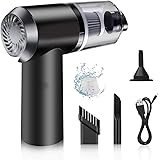Introduction
Thyroid cancer is a type of cancer that originates in the cells of the thyroid, a small gland at the base of your neck responsible for producing hormones that regulate metabolism, energy levels, and other vital functions. Although thyroid cancer is relatively uncommon compared to other cancers, cases have been increasing in recent years, possibly due to improved detection methods. Understanding the types, symptoms, causes, and available treatments can help individuals recognize early signs and seek timely medical intervention.
What is Thyroid Cancer?
Thyroid cancer develops when cells in the thyroid gland mutate and begin growing uncontrollably. While most thyroid nodules (lumps or growths) are benign, some can be cancerous. Thyroid cancer often has a good prognosis, especially when diagnosed early, as it typically grows slowly and responds well to treatment.
Types of Thyroid Cancer
There are several types of thyroid cancer, each with distinct characteristics and treatment approaches:
1. Papillary Thyroid Cancer
- Description: Papillary thyroid cancer is the most common type, accounting for about 80% of all thyroid cancers. It originates in the follicular cells that produce thyroid hormones.
- Characteristics: Typically slow-growing, this type can often spread to lymph nodes in the neck but usually responds well to treatment.
2. Follicular Thyroid Cancer
- Description: Follicular thyroid cancer is the second most common type and also arises from the thyroid’s hormone-producing follicular cells.
- Characteristics: More likely to spread to other organs like the lungs or bones, it tends to be more aggressive than papillary cancer but remains treatable.
3. Medullary Thyroid Cancer
- Description: Medullary thyroid cancer starts in the parafollicular cells, which produce the hormone calcitonin.
- Characteristics: This type is sometimes genetic, associated with multiple endocrine neoplasia type 2 (MEN 2) syndromes, and can spread early.
4. Anaplastic Thyroid Cancer
- Description: Anaplastic thyroid cancer is rare and highly aggressive, making up about 1-2% of thyroid cancer cases.
- Characteristics: Fast-growing and difficult to treat, this type may require a combination of therapies due to its aggressive nature.
Symptoms of Thyroid Cancer
Many thyroid cancers don’t cause noticeable symptoms in the early stages. However, as the cancer progresses, individuals may experience:
- Lump in the Neck: A palpable mass or nodule that can be felt in the lower front area of the neck.
- Voice Changes: Persistent hoarseness or changes in voice due to tumor pressure on the vocal cords.
- Swollen Lymph Nodes: Enlarged lymph nodes in the neck can be a sign of metastasis.
- Difficulty Swallowing or Breathing: Tumors pressing on the esophagus or trachea can cause these symptoms.
- Persistent Cough: A cough that isn’t related to a cold or other respiratory condition.
Causes and Risk Factors for Thyroid Cancer
The exact cause of thyroid cancer remains unclear, but certain risk factors can increase the likelihood of developing it:
1. Gender and Age
Women are more likely to develop thyroid cancer, especially those between the ages of 40 and 60.
2. Radiation Exposure
Exposure to radiation during childhood, particularly in the head and neck region, can increase the risk.
3. Genetic Factors
Family History: Having a family history of thyroid cancer, especially medullary thyroid cancer, raises the risk.
Inherited Conditions: Certain genetic mutations, such as those linked to multiple endocrine neoplasia type 2 (MEN 2), can also lead to a higher risk.
4. Iodine Intake
Low Iodine Levels: In areas where dietary iodine is low, there is an increased incidence of certain types of thyroid cancer.
Diagnosis of Thyroid Cancer
To diagnose thyroid cancer, doctors use a combination of methods:
- Physical Examination: A doctor examines the neck for lumps or swelling.
- Blood Tests: Thyroid function tests measure hormone levels to detect any irregularities. Calcitonin levels may also be tested if medullary cancer is suspected.
- Ultrasound: Imaging the thyroid gland helps determine the nature of nodules and detect abnormalities.
- Fine-Needle Aspiration Biopsy: A small tissue sample is taken from a thyroid nodule to check for cancerous cells.
- Genetic Testing: In cases of medullary thyroid cancer, genetic testing can help identify potential inherited mutations.
Treatment Options for Thyroid Cancer
Treatment depends on the type, stage, and aggressiveness of the thyroid cancer. The following are common approaches:
1. Surgery
Total Thyroidectomy: Removal of the entire thyroid gland, typically for larger or more aggressive tumors.
Lobectomy: Removal of one lobe of the thyroid, used in cases where cancer is confined to one side of the gland.
2. Radioactive Iodine Therapy
Often used after surgery to eliminate any remaining thyroid tissue or cancer cells, especially in papillary and follicular thyroid cancers.
3. Thyroid Hormone Therapy
After thyroid removal, patients require hormone therapy to replace thyroid hormones and suppress TSH (thyroid-stimulating hormone), which may help prevent cancer recurrence.
4. Radiation Therapy
External beam radiation may be used in cases where cancer has spread or if surgery is not an option.
5. Chemotherapy
While rarely used, chemotherapy may be an option for anaplastic thyroid cancer or advanced cases that don’t respond to other treatments.
6. Targeted Therapy
For advanced thyroid cancers, targeted therapies that focus on specific genetic mutations in cancer cells may be effective.
Prognosis and Survival Rates
Thyroid cancer generally has a favorable prognosis, especially when detected early. Survival rates vary depending on the type:
- Papillary and Follicular Thyroid Cancer: Typically have high survival rates, often over 90%.
- Medullary Thyroid Cancer: The prognosis depends on early detection and whether it’s associated with genetic syndromes.
- Anaplastic Thyroid Cancer: This type has a poor prognosis due to its aggressive nature, with lower survival rates.
Preventing Thyroid Cancer
While there’s no guaranteed way to prevent thyroid cancer, certain lifestyle adjustments and regular screenings may help reduce risk:
- Avoid Radiation Exposure: Minimize unnecessary radiation, particularly to the neck.
- Genetic Counseling: Individuals with a family history of medullary thyroid cancer may consider genetic counseling and early screening.
- Maintain Healthy Iodine Levels: Ensure adequate iodine intake through diet, especially in areas where iodine deficiency is common.
Living with Thyroid Cancer
Living with thyroid cancer involves regular follow-up care and monitoring to detect any recurrence. After treatment, patients may need lifelong thyroid hormone replacement therapy, as well as periodic blood tests to monitor hormone levels. Emotional support and joining support groups can also be beneficial in coping with the psychological impact of a cancer diagnosis.
Conclusion
Thyroid cancer is a treatable and often curable form of cancer, especially when diagnosed early. With advancements in detection and treatment, the outlook for thyroid cancer patients continues to improve. Recognizing symptoms, understanding risk factors, and undergoing regular screenings are essential steps in early detection and effective treatment. If you experience any unusual symptoms or have a family history of thyroid cancer, consult a healthcare professional in Faisal Hospital for evaluation and guidance.
FAQs
1. What are the first signs of thyroid cancer?
Early signs may include a lump in the neck, hoarseness, difficulty swallowing, or swollen lymph nodes. Often, symptoms are subtle at first, making regular check-ups essential.
2. How is thyroid cancer diagnosed?
Thyroid cancer is typically diagnosed with a physical exam, blood tests, ultrasound imaging, and a biopsy of the thyroid nodule.
3. Is thyroid cancer hereditary?
Some forms, like medullary thyroid cancer, can be hereditary, especially when linked to genetic syndromes like MEN 2.
4. What is the survival rate for thyroid cancer?
The survival rate for most types of thyroid cancer is high, particularly for papillary and follicular thyroid cancers, often exceeding 90% with early treatment.
5. Can thyroid cancer be cured?
Yes, many cases of thyroid cancer are curable, especially when detected early. Treatment options like surgery, radioactive iodine therapy, and hormone therapy contribute to high success rates.
Shalimar Premium Garbage Bags (Medium) Size 19 X 21 Inches 4 Rolls Plastic Dustbin Bag/Trash Bag, 120 Count, Black Color
₹299.00 (as of 20 November, 2024 18:31 GMT +05:30 - More infoProduct prices and availability are accurate as of the date/time indicated and are subject to change. Any price and availability information displayed on [relevant Amazon Site(s), as applicable] at the time of purchase will apply to the purchase of this product.)Crompton Arno Neo 15-L 5 Star Rated Storage Water Heater (Geyser) with Advanced 3 Level Safety, National Energy Conservation Award Winner 2023
₹6,299.00 (as of 20 November, 2024 18:31 GMT +05:30 - More infoProduct prices and availability are accurate as of the date/time indicated and are subject to change. Any price and availability information displayed on [relevant Amazon Site(s), as applicable] at the time of purchase will apply to the purchase of this product.)SHAYONAM 3IN1 Portable Car Vacuum Cleaner with Blower | USB Rechargeable Wireless Handheld Car Vacuum Cleaner Traveling, Camping Reusable,Portable,Rechargeable (Vacuum with Blower)(Multy)/*-
₹699.00 (as of 21 November, 2024 18:32 GMT +05:30 - More infoProduct prices and availability are accurate as of the date/time indicated and are subject to change. Any price and availability information displayed on [relevant Amazon Site(s), as applicable] at the time of purchase will apply to the purchase of this product.)MILTON Aura 1000 Thermosteel Bottle, 1050 ml Water Bottles, 24 Hours Hot and Cold, Easy to Carry, Easy Grip, Rust Proof, Tea, Coffee, Office, Travel Bottle, Dark Blue
₹931.00 (as of 20 November, 2024 18:31 GMT +05:30 - More infoProduct prices and availability are accurate as of the date/time indicated and are subject to change. Any price and availability information displayed on [relevant Amazon Site(s), as applicable] at the time of purchase will apply to the purchase of this product.)Zulaxy Photo Frame Hooks for Wall Without Drilling, 10 Pack Self Adhesive Hooks for Wall Heavy Duty Strong Nail Free for Hanging Photo Frame (Hanging Hook, Transparent) Stainless Steel
₹274.00 (as of 20 November, 2024 18:31 GMT +05:30 - More infoProduct prices and availability are accurate as of the date/time indicated and are subject to change. Any price and availability information displayed on [relevant Amazon Site(s), as applicable] at the time of purchase will apply to the purchase of this product.)Discover more from The General Post
Subscribe to get the latest posts sent to your email.





